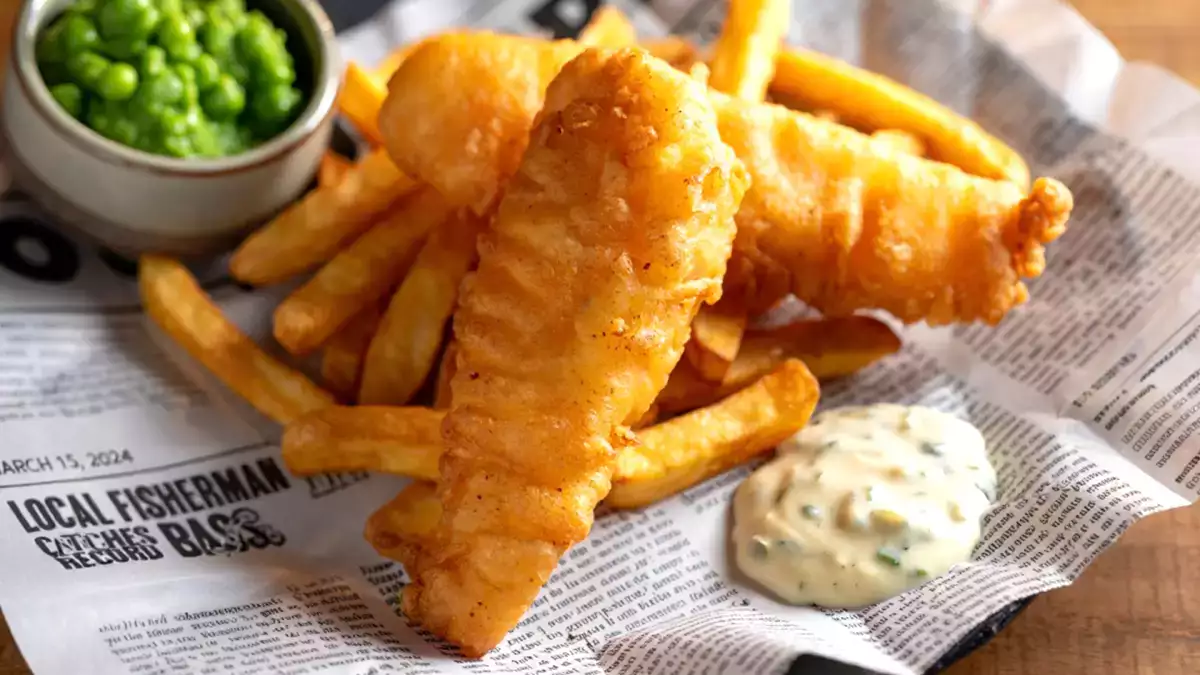Fish & Chips: the surprising Sephardic origins you might not expect

Anyone who has visited the United Kingdom will have tasted the famous Fish & Chips at least once. Newspaper wrappers, the smell of fried food invading the streets, golden crispness followed by the softness of potatoes: a culinary experience deeply associated with British identity. Yet what many people do not know is that this "national dish" has much more complex, ancient and Mediterranean. Its roots lie in the Sephardic Jewish diaspora, the Spanish Inquisition and the arrival of potatoes from the New World.
Today we tell you the true story of Fish & Chips: a journey through religious persecution, transoceanic trade and the social transformations of industrial England. A dish that is not just food, but a living tale of cultural fusion.
Sephardic origins of fried fish
To understand the origin of Fish & Chips, one must go back to 1492, the year in which the Catholic Monarchs expelled the Jews from Spain with the Edict of Granada. This event marked the beginning of a long diaspora that led thousands of Sephardic Jews to take refuge in different parts of the Mediterranean, and later also in Northern Europe. Among the many traditions that Sephardic Jews brought with them, one in particular has had a lasting impact: the "pescado frito," or white fish breaded and fried in boiling oil, eaten cold on the Sabbath in observance of Shabbat, during which cooking is forbidden. This dish was perfect to be cooked in advance and stored without violating religious precepts.
When some Sephardim came to London between the 17th and 18th centuries, especially to the Spitalfields neighborhood, they brought this recipe with them. The English, intrigued by these new flavors, began to adopt it, adapting it to local ingredients.
The arrival of potatoes and the birth of the perfect combination
Potatoes, now considered a common food in Europe, are actually a relatively recent addition to British cuisine. Originating in the Andes and introduced to the continent by the Spanish conquistadors, they gradually spread to become an inexpensive and popular food in Britain in the 19th century.
It was during this period, during the Industrial Revolution, that Fish & Chips began to take the form with which we know it today. The first fry shops sprang up in the mid-to-late 1800's, offering a nutritious, tasty and reasonably priced meal: fried fish accompanied by chips. Two ingredients from distant places and histories met, resulting in a perfect combination.
The boom in England's industrial cities
During the 19th century, England saw enormous urban and industrial growth. The working classes, concentrated in the cities and forced to work grueling hours, needed fast, hot and affordable food. Fish & Chips responded to this need by becoming one of the first true examples of modern street food.
That is why this dish became so popular:
- Cheap: fish such as cod or haddock were plentiful and inexpensive.
- Quick: frying takes only a few minutes.
- Nutritious: provides protein, carbohydrates and fat in one dish.
- Easy to carry: initially served in sheets of newsprint, it could also be eaten on the street.
In addition, Fish & Chips also passed a significant historical test: during World War II, it was one of the few foods not rationed. Winston Churchill considered it "essential to the morale of the British people".
The cultural value of Fish & Chips today
Today, Fish & Chips is known worldwide as one of the most iconic symbols of British culture. Discovering its true origins does not diminish its value; on the contrary, it enriches its history and transforms it into an even more significant emblem of what can come from the meeting of peoples, traditions and shared needs. In an age marked by migration and complex identities, this dish reminds us that many of our cultural roots are actually the result of exchange and contamination. Knowing the history of such an iconic food invites us to look at the present with greater awareness, respect and curiosity about what we bring to the table.
The next time you find yourself in front of a steaming Fish & Chips, remember: you are not just enjoying a British delicacy, but a piece of world history.
Sources:
Claudia Roden, The Book of Jewish Food, Penguin Books, 1999
Panikos Panayi, Fish and Chips: A History, Reaktion Books, 2014
BBC History Extra - "The surprising history of fish and chips."
The Guardian - "Fish and chips: a story of migration, identity and reinvention"
Jewish Museum London - "Sefardi Jewish Food Culture in Britain"
Oxford Companion to Food - Alan Davidson
 Khadija Diagne
Khadija Diagne
Comments